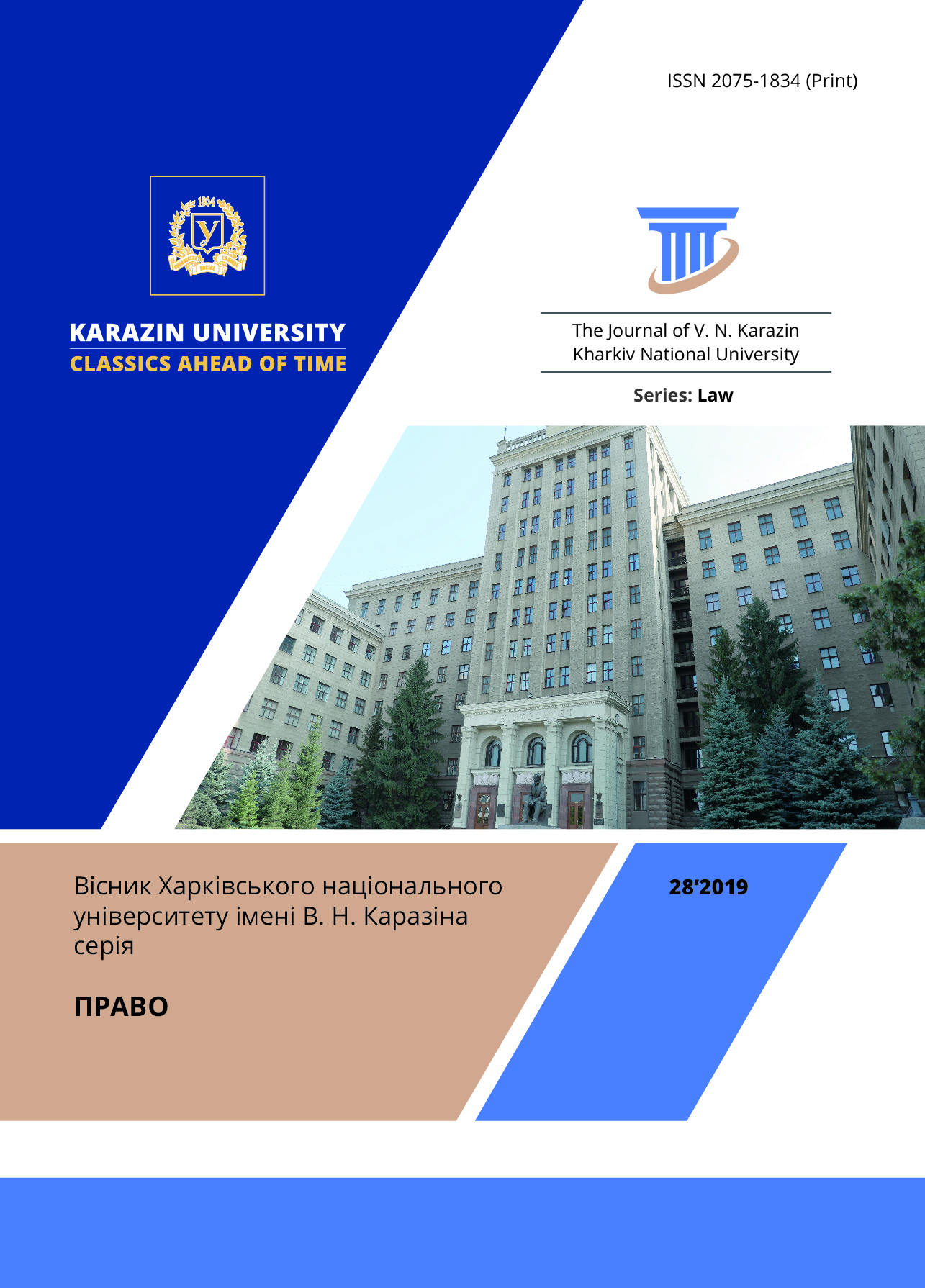Methodology of civil law science
Abstract
The article deals with the methods of scientific researches in civil law such as dialectic, method of formal logic and method of structural system. The characteristics of these methods are also studied. The article supports thesis on dialectic being the most common method in legal researches, while other methods of scientific knowledge complete dialectic and logically derive from it. The method of formal logic allows us to understand the logic of legal norm and its construction. The method of structural system takes into account the nature of research and its value system and priorities.
The article deals with some aspects of civil law methodology.
The dialectical method is considered to be common, allowing to achieve progressive results in different fields of knowledge. The method of formal logic is traditionally important in the legal system, it helps us logically apply the regulations, rules, and forms of law to specific situations. Rule of law is the fundamental principle that allows applying the law as a form of justice by using the method of a structural system.
Using dialectic we can solve scientific problems such as new knowledge development through comparing opposite scientific believes; denial of one scientific theory and formulation of others; deepening theory of researches that already exist.
The method of formal logic allows us to create science classifications, it helps to highlight the features of specific legal action and its nature and it also makes it possible to periodize those actions. Moreover, this method allows formulating the meaning of legal categories according to its characteristics.
The method of the structural system is based on the action matter, value system and priorities of the State. According to the Constitution of Ukraine (article. 3), the most important of them are human rights. The protection of those rights is the main orientation in State existence.
Downloads
References
Кузнецова Н.С. Методологічні засади сучасного цивільного права України: предмет, метод, принципи, система // Спогади про Людину, Вченого, Цивіліста-епоху (до 85-річчя від Дня народження академіка Ярославни Миколаївни Шевченко). – К.: АртЕк, 2017. – С.200-216.
Шишка Р.Б. Організація наукових досліджень та підготовки магістерських і дисертаційних робіт : Навчальний посібник. – Х.: Еспада, 2007. – 368 с.
Слипченко С. А. Метод альтернатив в развитии учения о личных неимущественных правах // Методология исследования проблем цивилистики : сб. ст., посвящ. памяти проф. А. А. Пушкина – Харьков : Право, 2017. – 432 с.
Хворостянкіна А. В. Юридична аргументація в англо-саксонській та романогерманській правових системах: методологічні засади порівняльного аналізу // Наукові записки НУКМА. Юридичні науки. 2012. Т. 129. С. 16.
Рузавин Г. И. Методология научного познания. М.: Юнити, 2005. С. 61–67.
Галянтич М.К. Приватно-правові засади реалізації житлових прав громадян в Україні : автореф. дис… докт. юрид. наук. – К: КНУ імені Тараса Шевченка. – 48 с.
Селіванов А.О. Верховенство права в конституційному правосудді: Аналіз конституційної юрисдикції. - К.; Х.:Акад. прав. Наук України, 2006. – 136 с.
Майданик Р. Основи аргументації рішення суду в цивільному судочинстві України // Право України. 2016. № 10. С. 103.
Вечерний Николаев. - [електронний ресурс] - URL: www.vn.mk.ua/stories.php?id=2477.
Copyright (c) 2019 Євген Олександрович Мічурін

This work is licensed under a Creative Commons Attribution 4.0 International License.




